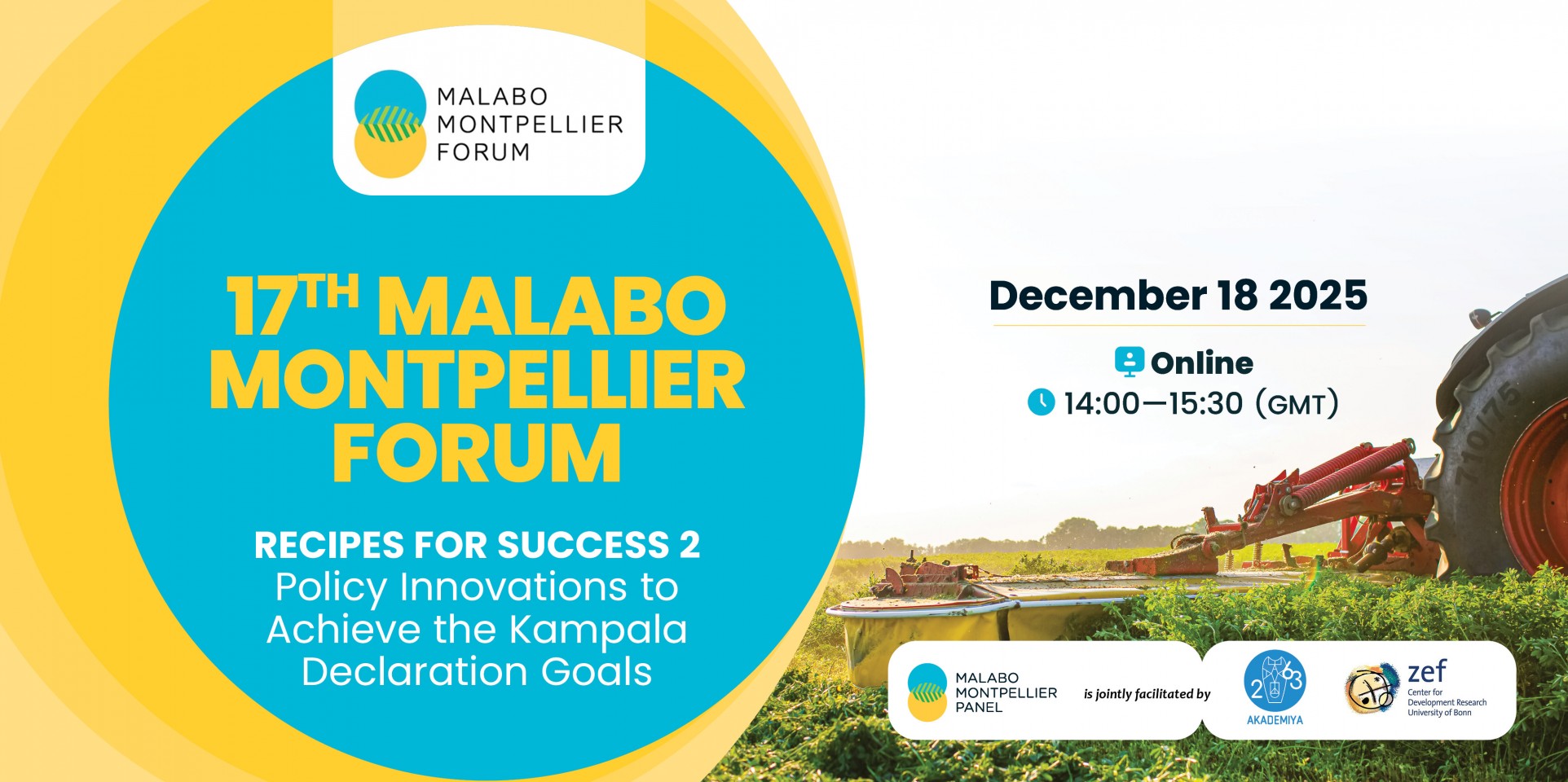RECIPES FOR SUCCESS 2
Policy Innovations to Achieve the Kampala Declaration Goals.
The Malabo Montpellier Forum provides a platform to facilitate dialogue and exchange among high-level decision-makers on African agriculture, nutrition, and food security and to promote policy innovation using evidence produced by the Malabo Montpellier Panel, a group of 13 leading African and international experts in agriculture, ecology, nutrition, and food security.
The Forum Co-Chairs are H.E. Dr. Ibrahim Mayaki, African Union Special Envoy for Food Systems and Former Prime Minister of Niger, and H.E. Dr. Assia Ben Salah Alaoui, Ambassador at Large to His Majesty King Mohamed VI of Morocco. The Forum meets twice a year, and every meeting is guided by a technical report prepared by members of the Malabo Montpellier Panel.
Themed Recipes for Success 2: Policy Innovations to Achieve the Kampala Declaration Goals, the Panel's forthcoming report focuses on the evidence needed to guide the implementation of the Kampala CAADP Agenda by pulling together a rich set of lessons from 70 country case studies conducted by the Malabo Montpellier Panel over the last decade. This research provides other countries with opportunities to replicate and scale effective strategies across areas such as agrifood finance, agro-processing, climate resilience, digitalization, fisheries, irrigation, mechanization, nutrition, and youth and women’s empowerment. It serves as a practical reference for African governments, development partners, and private-sector actors to advance the ambitions of the Kampala Declaration by aligning proven interventions with the framework’s six strategic objectives.
The Forum meeting will be conducted in two parts: a technical part drawing on the findings and recommendations from the Panel’s report, and a high-level policy roundtable composed of senior representatives from African governments.
The Malabo Montpellier Panel is jointly facilitated by AKADEMIYA2063 and the Center for Development Research (ZEF), University of Bonn.

